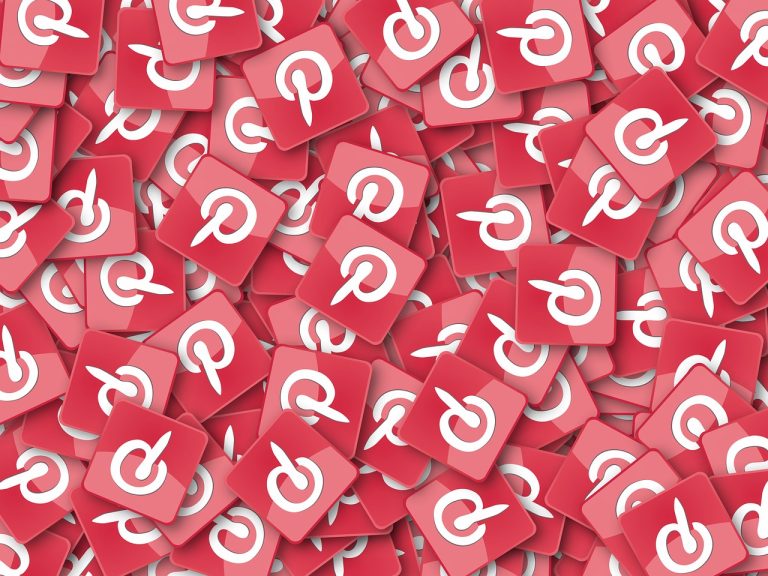4 Time-Saving Social Media Tips
Today’s guest post is from social media expert Frances Caballo, who has some great tips for writers on streamlining and assessing time spent on social media sites. She’s just released a new book called Avoid Social Media Time Suck, which I’ve devoured and highly recommend every writer purchase! This is just a short bit from her book:
What is time suck? It’s the hours of time you can unintentionally spend in front of your computer reviewing Facebook posts, retweeting your Tweeps, and uploading photos while your writing and maybe even your family await your undivided attention.
We’ve all lost time while using Facebook. Perhaps our only intention was to post an update and an image, but then . . . look what happens instead. You see a post from a friend who is feeling down, so you stop to write an encouraging note. Then you notice that a colleague posted a great article about self-publishing and you can’t resist the temptation to read it. You navigate to the website with the article and you find a book for sale there. You’ve got to have it. So you go to Amazon, read the reviews, and decide whether you want a new or used version or an ebook.
You eventually return to Facebook, upload your image, and write the update. How much time have you lost? Thirty minutes? Maybe an hour?
Who has the time for that?
Don’t Get Lost in the Vortex
Getting lost in the vortex of time suck is easy and it’s the greatest fear among writers who are new to social media. But there are remedies.
There are 4 basic principles to social media that you can follow:
- Curation: Set a timer and spend 5 to ten 10 minutes each morning scouring the Internet, websites such as Alltop, for the best information to share in your niche. Or use a curation application such as Scoop.it, Paper.li or Google Trends.
- Schedule: No one has the time to spend all day—or long chunks of time—at their computers posting content to their social media profiles. Use an application such as Hootsuite, TweetDeck (for Twitter only), or Buffer to schedule your posts, tweets, and updates throughout the day. With Buffer and Hootsuite you can schedule your Facebook posts; however, Facebook has its own scheduling feature right within the status update box on your Facebook author page.
- Socialize: Use your mobile device in the evening while you relax to check your social media accounts. Spend 15 minutes commenting, sharing posts, retweeting, and re-pinning on Pinterest. Consciously schedule this time into your day and enjoy it—virtually. If you’re concerned about the clock, set your timer again so you don’t lose track of time.
- ROI: Once a week, schedule some time to review your statistics to analyze your return on investment (ROI). Indicators will include statistics on engagement, influence, and demographics, and enumerate the number of new likes you received on your Facebook page, retweets, new followers, and other measurements. Use this information to gauge your success and understand which messages work best with your audience.
Social Media vs. Broadcast Media
Television and radio programs are considered broadcast media. They tell us what their messages are. In the case of TV, with few exceptions, there isn’t any room for viewer feedback or conversation unless you consider what happens on the Maury Povich Show conversation. Talk radio includes listener views but the environment is still controlled by a producer and the host.
Social media is the first form of media that emphasizes and rewards conversations. You now have an opportunity to talk with your readers, learn about them, and empathize with them. Writers who don’t schedule time to be social on Facebook or Twitter are turning a social platform into broadcast media. If you simply broadcast your messages—“Buy my book!”—you won’t be rewarded in website visits or book purchases. However, if you allot time for talking with your readers via a social media network, you will gain loyal followers who, in many cases, will help to market your books.
with your readers, learn about them, and empathize with them. Writers who don’t schedule time to be social on Facebook or Twitter are turning a social platform into broadcast media. If you simply broadcast your messages—“Buy my book!”—you won’t be rewarded in website visits or book purchases. However, if you allot time for talking with your readers via a social media network, you will gain loyal followers who, in many cases, will help to market your books.
You can schedule 15 minutes at the end of your day for thanking your retweeters (Twitter followers who repost your messages), commenting on your friends and fans’ posts, and interacting with your growing body of contacts. Use this time to engage with other writers, colleagues, editors, agents, readers and friends. Thank people for finding and posting a great blog you enjoyed reading. Share a stunning image of a dahlia that a reader pinned on Pinterest. If you interact with your contacts, your following will grow.
Measure Your Return on Investment (ROI)
Social media platforms are free, but our time isn’t. In this 24/7 culture we live in, there never seems to be sufficient time to check all of our e-mail, read our Facebook friends’ posts, and finish all the books we hope to write. So we want to be certain that our time on social media is well spent.
We also want to analyze what works and what doesn’t. Do more of your friends and fans on Facebook comment when you include an image with your post? If you’re testing blog post titles, was there a certain title that your Tweeps retweeted more often? Are you losing followers on Twitter as fast as you’re gaining them? Do you know why your Facebook page likes soared by 300 last month?
You need to know the answers to these questions so that you will know what to post in the future. Discovering the messages that resonate with your audience is critical to your marketing efforts. To know what these metrics are, subscribe to an application that will analyze your performance and help you to learn from the data that it culls. Here are a few:
- LikeAlyzer: All you need to do is type in the web address to your Facebook author page (not your personal profile) and this free program will analyze your engagement. Your score will be somewhere between 1 and 100. The higher your score, the better you are doing. It will rate your growth in likes, rank your score against similar pages, measure your response time to comments left by fans, determine whether you are asking questions often enough, and remind you to denote more milestones. Basically, it provides an at-a-glance look at the areas you excel in and the areas that need improvement. Everyone with a Facebook tool should take advantage of this free analytics program.
- SproutSocial: For $39/month, SproutSocial will analyze your Facebook and Twitter accounts. The analytics are comprehensive, and in addition to a PDF report, you can download an Excel spreadsheet that shows your click-through rates on a day-by-day basis. It provides in-depth demographics and measures tweets, retweets, follows, mentions, replies, and direct messages. It will also measure how social you are and determine your influence. You can also use this application to schedule your posts, unfollow users, and at the premium level, it will determine your best posting times.
- Measureful: For $49/month, this application will analyze your data every week, build your reports, and send them to you. Measureful automatically distills your Google Analytics data into weekly insights and reports. You can connect your accounts in 5 minutes or less and wait for the reports to arrive.
- Curalate: Curalate bills itself as the only analytics program for Instagram and Pinterest. It will analyze social media conversations and provide insights into your Pinterest and Instagram profiles. Use it to measure, monitor, and grow your influence. In today’s increasingly visual world of applications, Curalate can combine sophisticated image recognition algorithms with technologies to provide you with an analysis of your images. If you’re a writer and photographer, this is the analytic tool you’ll likely need.
Social media needn’t force you to spend hours at your computer every day, sucking the hours out of your day when you have other pressing needs, responsibilities, and desires to write. By spending 15 minutes every morning curating and scheduling and 15 minutes every evening socializing online, you will benefit from the power of social media in today’s world and find readers who will be happy to find you and read your books.
Feature Photo Credit: robpatrick via Compfight cc
About the Author: Frances Caballo is a social media manager for writers and author of Avoid Social Media Time Suck: A Blueprint for Writers to Create Online Buzz for Their Books and Still Have Time to Write, Social Media Just for Writers: The Best Online Marketing Tips for Selling Your Books and Blogging Just for Writers. Presently, she is the Social Media Manager for the Women’s National Book Association-SF Chapter, the San Francisco Writers Conference, and the Bay Area Independent Publishers Association. You can find her on Facebook, Twitter, LinkedIn, Pinterest, and Google+.













Great article. Time saving is very important, but it is also important to ensure your time is spent effectively too.
I think you need to review how time is spent to see how effective it is. Focus on what works and change what doesn’t.
Yes, you are right. It’s important to make sure that our time is used effectively. That is why analytics are so important. We need to take time once a week or once a month to determine if our messaging is encouraging engagement with our audience.
I think scheduling is a fantastic idea. I am still in utero with this blogging thing so I quite a bit more than 15 mins scouring blogs that interest me, reaching out, socializing, not to mention research for my next post, first drafts, sometimes second drafts and the fiction work I try to do in spare time. As of right now I get up with my husband and am “in the office” from 9 to 530. I do think that time will lessen once I become familiar with sites to rely on and build relationships with other bloggers. Thank you for the educational post. Best Wishes.
You’re absolutely right, Renee. As our experience deepens, we get faster at handling our social media.
Excellent advice. It’s all-too easy to get completely sucked in, particularly once you start seeing results. Very few people ever talk about the ROI of social for bloggers, so it was great to see you bring this up.
I’m so glad you liked the post. Thanks for taking the time to leave a comment, Jon.
Sweet! I didn’t know about those analytic tools. Definitely checking them out. Thanks!
There are analytics tools for every budget. Plus, Facebook’s Insights is free (on fan pages once they have 35 likes), Twitter now offers analytics, and Pinterest business accounts offer analytics for free (authors are businesses). You’ll have fun checking them out.
This is very useful information. I’ve bookmarked this to refer to later. I’m sure many writers, including myself, will find this useful now and in future.
My problem is that whenever I decide to update or change anything it frequently takes me half a day to figure it out, even when I’m following directions. I guess we all can’t be computer geeks, or even computer geeklets.
I’m that way too. I try to learn little bits at a time or I get overwhelmed. You might just choose one program to learn and explore and get proficient at that. The good thing is there are almost always videos, either on YouTube or provided by the software/app company that you can watch that will give you tutorials.
If you have a specific question, let me know. You can send me a tweet, contact me on Facebook, or message me through my website.
Good tips, but I urge poets and writers who use services that automatically post on the major social sites to be very careful about doing this in groups they belong to on Facebook. In the FB group I began for Christian Poets & Writers, for example, members can tell if someone is merely using our group to laud themselves or hawk their products, which has a negative impact. Far more positive is actively participating in such groups and getting to know and encourage your poet-peers and new writer-friends, who will then be interested in your work.
Good tips! I’m trying to do more work with Google+, and I know it’s working because new people join my circles each day.
Thank you. Very useful information as I do exactly what you say, spending much more time that I realise when I could be writing my next book! The social media world is definitely a sharp learning curve!
Great article!!! Succinct, direct, helpful.
I wonder though about getting it all done in 15 minutes!!! I currently have a personal page on Facebook and two fan pages. There is that and my Twitter account plus LinkedIn. I can’t seem to keep up with it all.
Yet I have found my stats up a bit, and you are correct, Facebook’s Insights are very, very helpful.
Great info all around. Thank you!!!
A question just occurred to me, if I may?
I used to interact with those I had selected as friends on my Facebook fan pages, but now I notice that only my posts are there and no longer the posts of my friends. Did something change while I wasn’t looking???
Love and blessings,
Dr. Ni
I know what you mean about Facebook. They have changed my account so many times that my fan’s are as confused as I am. I tried to work with Facebook, but to no avail. I just do not have time to fuss with it any more so had to look the other way and just let it be. One day, I’ll get back to it, however I know they will start me all over from scratch! Good luck on your account.
Great tips on the application sites! I had no idea they existed.
Thanks Frances.
Frances, those were some great tips on social media. I need to get a better grip on my own social media involvement. Thanks again.